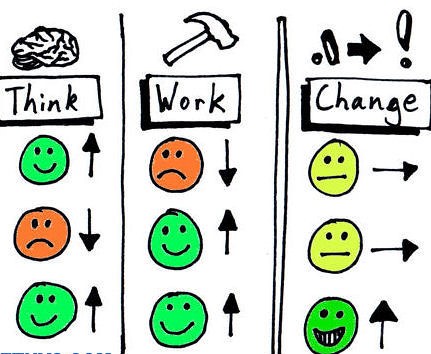
The Stoic ideal of wisdom differed during the early and late period. Stoic philosophy is rich with advice on how to conduct yourself in order to lead a happier life.
We all strive to become better at something each day. It is the drive that pushes us forward to our picture of a better version of ourselves. This strong imagination is something we have projected in the future, like a goal which seems closer every day. Our improved version of ourselves however, can sometimes seem unreachable and distant.
The consequence of this swift flight into the future can often disappoint, because at some point of time, we can find ourselves lost and drained. This state can lead to many different unwanted consequences.
In stoic philosophy, the ideal of being wise is more often than not unreachable, which is why it is an ideal, but it is still the way or path that one should take without being disheartened by an attainable goal.
An ideal of wise man in stoic philosophy had some amendments, considering the long history of the school. According to the early stoic philosopher Chrysippus, only a few people in their later years of life can reach it, but then it might be too late to practice it.
While the late Stoics are characterized by this idealism, the late (Roman) Stoics view things differently. Roman stoics emphasized moral advancement by focusing on encouraging people to take and persevere the path of virtue. Claiming that no individual actually corresponds to the ideal of a wise man, they divided humanity into fools and those who progress towards virtue and wisdom.
We will try to follow this latter Roman stoic path, since it is more practical than the metaphysical picture painted by the likes of both Zeno and Chrysippus.
Thinking about your ideal
- Distant wishes – Forsaken present
The first thing that you should reflect on is projection, which pushes you further and further into the future. Imagination can stall your progress because of these distant projections of your achievements. Seneca once said that we suffer more in imagination than in real life.
Such behavior can lead us to forsake the present moment, which happens at a slower pace. It is an interesting fact that in the modern world, we think more about what has happened and what can happen than what is actually happening. In other words, we lose the ground below us in the blurry lines of past and future.
In order to improve and become calmer, you should be able to focus more on yourself (since it is your focus after all). That means to slow your pace towards the future by focusing on the outcomes and concentrate on little steps. The first of those steps should be a question: What can I control? What is really in my power Now? And then take the first step.
- Advancement through resolution and action
Once you learn what is really in your power (your mind and emotional responses), and what is not (outer events, people and objects), you will be able to take those steps which can lead to your personal growth and development.
However, it is wrong to fixate on improving yourself every day and it shouldn’t be on your mind often.
Stop thinking about it, because it can lead to another projection in the future. Focus on now, bring some resolutions and decisions to this moment. Don’t think too much about the array of possibilities – but act now!
Waste no more time arguing about what a good man should be. Be one.
Marcus Aurelius
If you want to be a writer – write!
Epictetus
- Crushing opinion of Incognito
The world is full of critics; however, even if there is constructive criticism that can help you to grow, there are many instances where criticism doesn’t serve a purpose. That is the opinion of ‘the incognito crowd’ and you should not consider it. As Seneca puts it:
The Stoic sage pays no attention to what others consider shameful or miserable. He does not walk with the crowd.
Seneca
On the other hand, you should not take hollow admiration into account too. If you value yourself, you won’t be feeding your ego on external incognitos and their applause. Aristotle once stated that Plato should not be praised by the fools and corrupted. This sentiment was also later echoed by Seneca:
How foolish one must be to leave a lecture hall gratified by the applause of the ignorant! Why do you take pleasure in praise from those you cannot praise yourself?
Seneca










